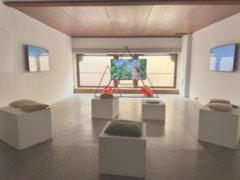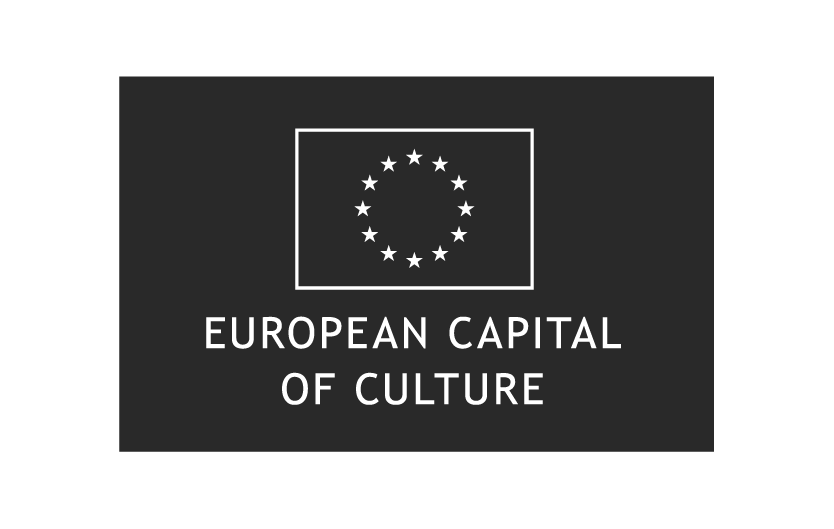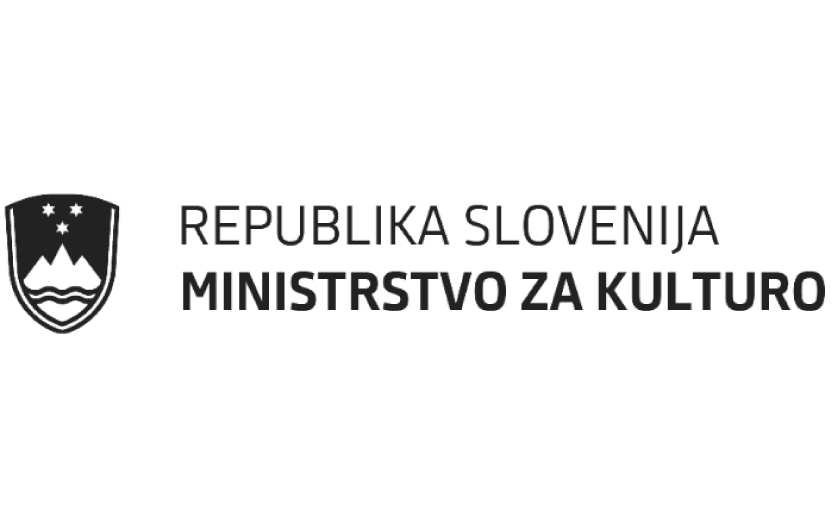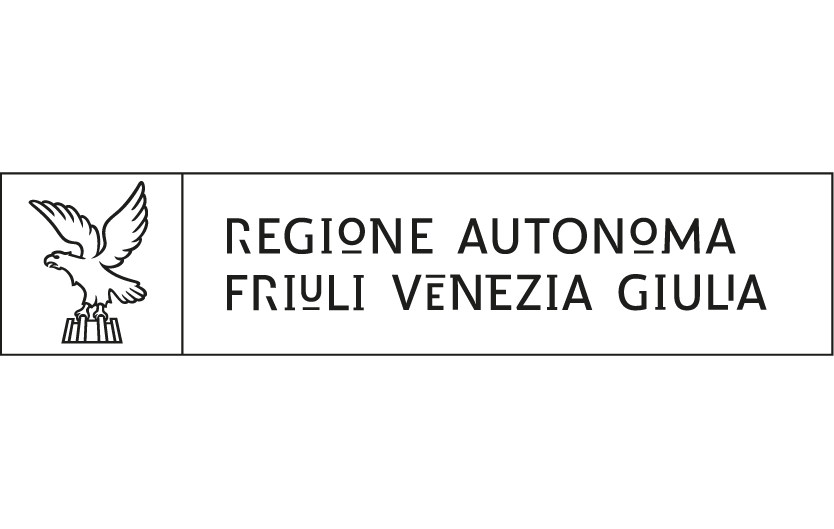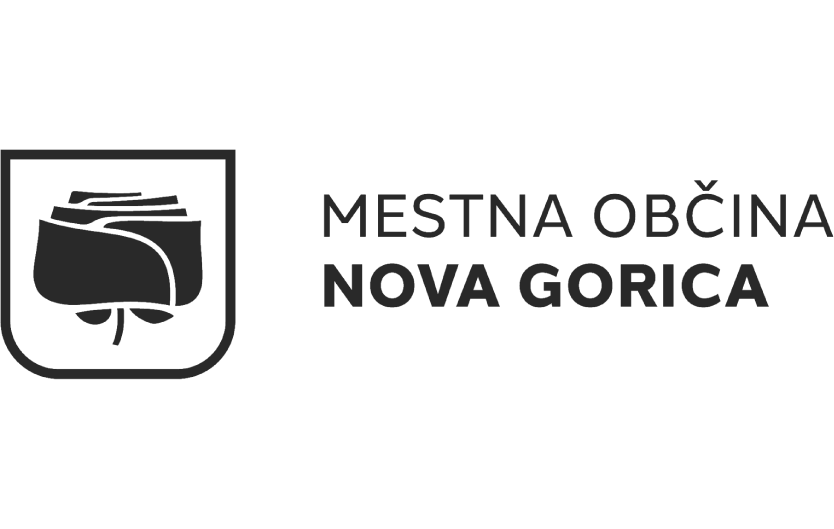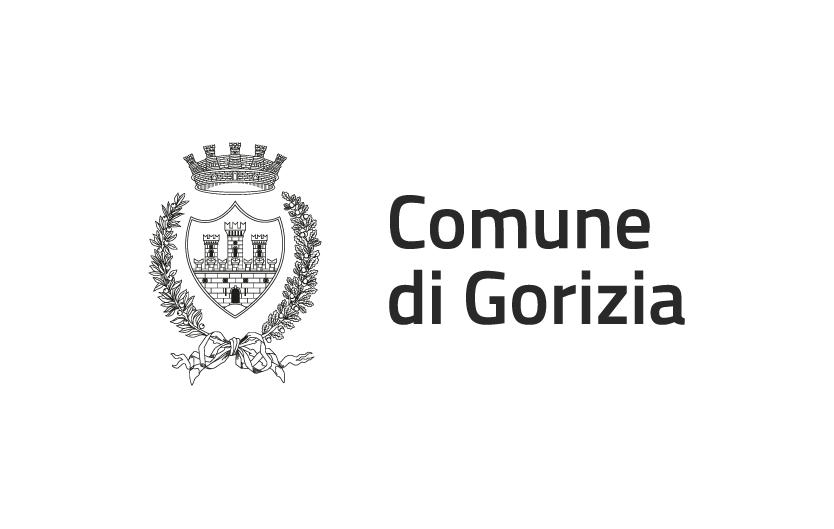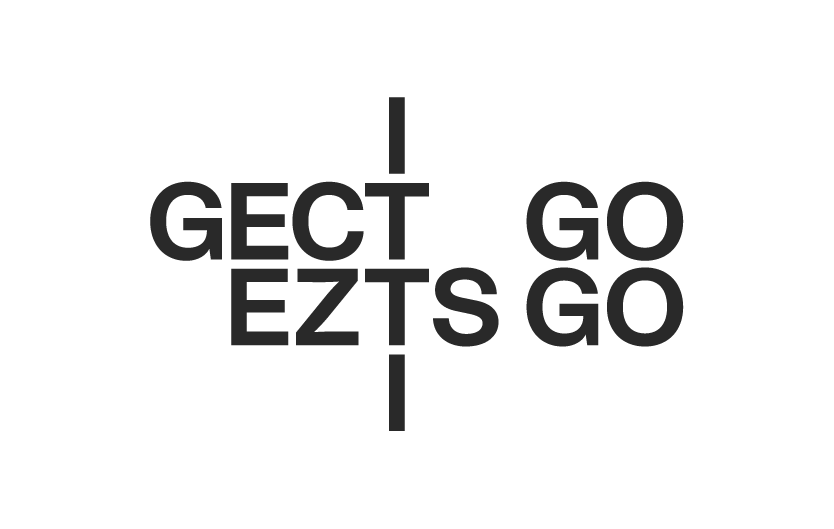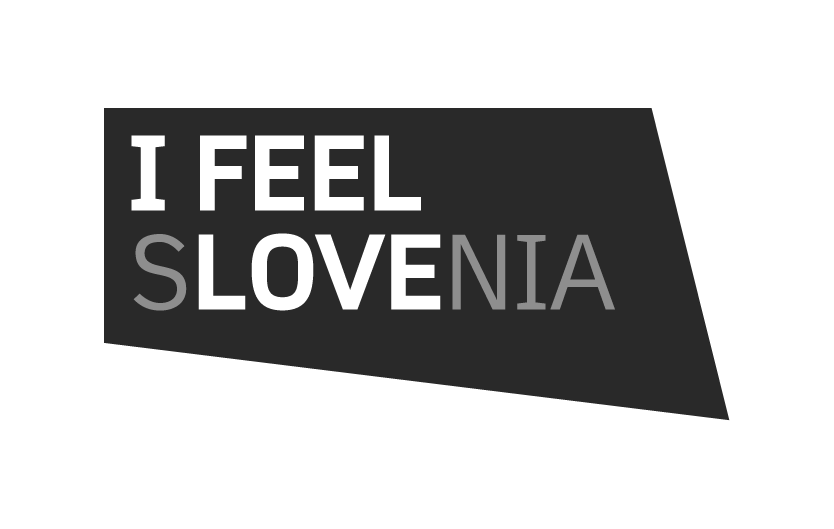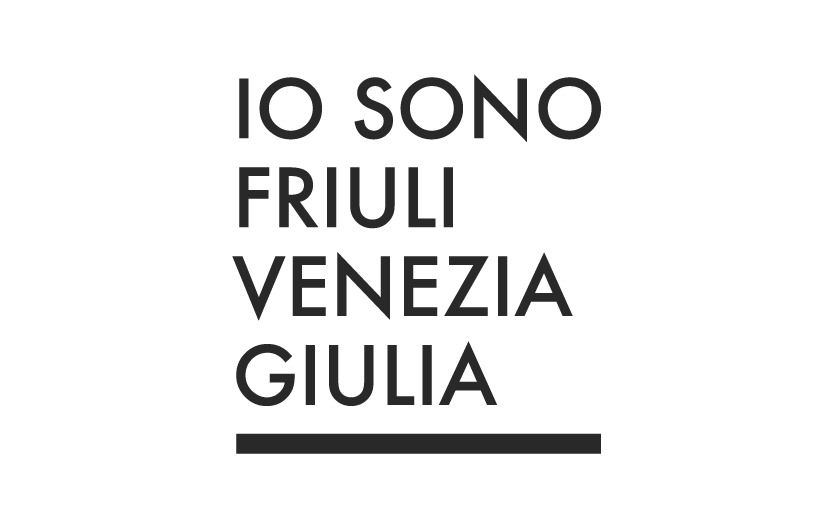When:
03/06 - 31/12/2025
- Monday, Tuesday, Wednesday, Thursday from 9:30 to 13:00, from 13:30 to 18:00
- Friday, Saturday, Sunday from 10:00 to 13:00, from 14:00 to 19:00
Where:
CASA KRAINER
Via Rastello 43
34170 Gorizia
(GO)
- June 3, 2025 9:30 - 13:00
- June 4, 2025 9:30 - 13:00
- June 5, 2025 9:30 - 13:00
- June 6, 2025 10:00 - 13:00
- June 7, 2025 10:00 - 13:00
- June 8, 2025 10:00 - 13:00
- June 9, 2025 9:30 - 13:00
- June 10, 2025 9:30 - 13:00
- June 11, 2025 9:30 - 13:00
- June 12, 2025 9:30 - 13:00
- June 13, 2025 10:00 - 13:00
- June 14, 2025 10:00 - 13:00
- June 15, 2025 10:00 - 13:00
- June 16, 2025 9:30 - 13:00
- June 17, 2025 9:30 - 13:00
- June 18, 2025 9:30 - 13:00
- June 19, 2025 9:30 - 13:00
- June 20, 2025 10:00 - 13:00
- June 21, 2025 10:00 - 13:00
- June 22, 2025 10:00 - 13:00
- June 23, 2025 9:30 - 13:00
- June 24, 2025 9:30 - 13:00
- June 25, 2025 9:30 - 13:00
- June 26, 2025 9:30 - 13:00
- June 27, 2025 10:00 - 13:00
- June 28, 2025 10:00 - 13:00
- June 29, 2025 10:00 - 13:00
- June 30, 2025 9:30 - 13:00
- July 1, 2025 9:30 - 13:00
- July 2, 2025 9:30 - 13:00
- July 3, 2025 9:30 - 13:00
- July 4, 2025 10:00 - 13:00
- July 5, 2025 10:00 - 13:00
- July 6, 2025 10:00 - 13:00
- July 7, 2025 9:30 - 13:00
- July 8, 2025 9:30 - 13:00
- July 9, 2025 9:30 - 13:00
- July 10, 2025 9:30 - 13:00
- July 11, 2025 10:00 - 13:00
- July 12, 2025 10:00 - 13:00
- July 13, 2025 10:00 - 13:00
- July 14, 2025 9:30 - 13:00
- July 15, 2025 9:30 - 13:00
- July 16, 2025 9:30 - 13:00
- July 17, 2025 9:30 - 13:00
- July 18, 2025 10:00 - 13:00
- July 19, 2025 10:00 - 13:00
- July 20, 2025 10:00 - 13:00
- July 21, 2025 9:30 - 13:00
- July 22, 2025 9:30 - 13:00
- July 23, 2025 9:30 - 13:00
- July 24, 2025 9:30 - 13:00
- July 25, 2025 10:00 - 13:00
- July 26, 2025 10:00 - 13:00
- July 27, 2025 10:00 - 13:00
- July 28, 2025 9:30 - 13:00
- July 29, 2025 9:30 - 13:00
- July 30, 2025 9:30 - 13:00
- July 31, 2025 9:30 - 13:00
- August 1, 2025 10:00 - 13:00
- August 2, 2025 10:00 - 13:00
- August 3, 2025 10:00 - 13:00
- August 4, 2025 9:30 - 13:00
- August 5, 2025 9:30 - 13:00
- August 6, 2025 9:30 - 13:00
- August 7, 2025 9:30 - 13:00
- August 8, 2025 10:00 - 13:00
- August 9, 2025 10:00 - 13:00
- August 10, 2025 10:00 - 13:00
- August 11, 2025 9:30 - 13:00
- August 12, 2025 9:30 - 13:00
- August 13, 2025 9:30 - 13:00
- August 14, 2025 9:30 - 13:00
- August 15, 2025 10:00 - 13:00
- August 16, 2025 10:00 - 13:00
- August 17, 2025 10:00 - 13:00
- August 18, 2025 9:30 - 13:00
- August 19, 2025 9:30 - 13:00
- August 20, 2025 9:30 - 13:00
- August 21, 2025 9:30 - 13:00
- August 22, 2025 10:00 - 13:00
- August 23, 2025 10:00 - 13:00
- August 24, 2025 10:00 - 13:00
- August 25, 2025 9:30 - 13:00
- August 26, 2025 9:30 - 13:00
- August 27, 2025 9:30 - 13:00
- August 28, 2025 9:30 - 13:00
- August 29, 2025 10:00 - 13:00
- August 30, 2025 10:00 - 13:00
- August 31, 2025 10:00 - 13:00
- September 1, 2025 9:30 - 13:00
- September 2, 2025 9:30 - 13:00
- September 3, 2025 9:30 - 13:00
- September 4, 2025 9:30 - 13:00
- September 5, 2025 10:00 - 13:00
- September 6, 2025 10:00 - 13:00
- September 7, 2025 10:00 - 13:00
- September 8, 2025 9:30 - 13:00
- September 9, 2025 9:30 - 13:00
- September 10, 2025 9:30 - 13:00
- September 11, 2025 9:30 - 13:00
- September 12, 2025 10:00 - 13:00
- September 13, 2025 10:00 - 13:00
- September 14, 2025 10:00 - 13:00
- September 15, 2025 9:30 - 13:00
- September 16, 2025 9:30 - 13:00
- September 17, 2025 9:30 - 13:00
- September 18, 2025 9:30 - 13:00
- September 19, 2025 10:00 - 13:00
- September 20, 2025 10:00 - 13:00
- September 21, 2025 10:00 - 13:00
- September 22, 2025 9:30 - 13:00
- September 23, 2025 9:30 - 13:00
- September 24, 2025 9:30 - 13:00
- September 25, 2025 9:30 - 13:00
- September 26, 2025 10:00 - 13:00
- September 27, 2025 10:00 - 13:00
- September 28, 2025 10:00 - 13:00
- September 29, 2025 9:30 - 13:00
- September 30, 2025 9:30 - 13:00
- October 1, 2025 9:30 - 13:00
- October 2, 2025 9:30 - 13:00
- October 3, 2025 10:00 - 13:00
- October 4, 2025 10:00 - 13:00
- October 5, 2025 10:00 - 13:00
- October 6, 2025 9:30 - 13:00
- October 7, 2025 9:30 - 13:00
- October 8, 2025 9:30 - 13:00
- October 9, 2025 9:30 - 13:00
- October 10, 2025 10:00 - 13:00
- October 11, 2025 10:00 - 13:00
- October 12, 2025 10:00 - 13:00
- October 13, 2025 9:30 - 13:00
- October 14, 2025 9:30 - 13:00
- October 15, 2025 9:30 - 13:00
- October 16, 2025 9:30 - 13:00
- October 17, 2025 10:00 - 13:00
- October 18, 2025 10:00 - 13:00
- October 19, 2025 10:00 - 13:00
- October 20, 2025 9:30 - 13:00
- October 21, 2025 9:30 - 13:00
- October 22, 2025 9:30 - 13:00
- October 23, 2025 9:30 - 13:00
- October 24, 2025 10:00 - 13:00
- October 25, 2025 10:00 - 13:00
- October 26, 2025 10:00 - 13:00
- October 27, 2025 9:30 - 13:00
- October 28, 2025 9:30 - 13:00
- October 29, 2025 9:30 - 13:00
- October 30, 2025 9:30 - 13:00
- October 31, 2025 10:00 - 13:00
- November 1, 2025 10:00 - 13:00
- November 2, 2025 10:00 - 13:00
- November 3, 2025 9:30 - 13:00
- November 4, 2025 9:30 - 13:00
- November 5, 2025 9:30 - 13:00
- November 6, 2025 9:30 - 13:00
- November 7, 2025 10:00 - 13:00
- November 8, 2025 10:00 - 13:00
- November 9, 2025 10:00 - 13:00
- November 10, 2025 9:30 - 13:00
- November 11, 2025 9:30 - 13:00
- November 12, 2025 9:30 - 13:00
- November 13, 2025 9:30 - 13:00
- November 14, 2025 10:00 - 13:00
- November 15, 2025 10:00 - 13:00
- November 16, 2025 10:00 - 13:00
- November 17, 2025 9:30 - 13:00
- November 18, 2025 9:30 - 13:00
- November 19, 2025 9:30 - 13:00
- November 20, 2025 9:30 - 13:00
- November 21, 2025 10:00 - 13:00
- November 22, 2025 10:00 - 13:00
- November 23, 2025 10:00 - 13:00
- November 24, 2025 9:30 - 13:00
- November 25, 2025 9:30 - 13:00
- November 26, 2025 9:30 - 13:00
- November 27, 2025 9:30 - 13:00
- November 28, 2025 10:00 - 13:00
- November 29, 2025 10:00 - 13:00
- November 30, 2025 10:00 - 13:00
- December 1, 2025 9:30 - 13:00
- December 2, 2025 9:30 - 13:00
- December 3, 2025 9:30 - 13:00
- December 4, 2025 9:30 - 13:00
- December 5, 2025 10:00 - 13:00
- December 6, 2025 10:00 - 13:00
- December 7, 2025 10:00 - 13:00
- December 8, 2025 9:30 - 13:00
- December 9, 2025 9:30 - 13:00
- December 10, 2025 9:30 - 13:00
- December 11, 2025 9:30 - 13:00
- December 12, 2025 10:00 - 13:00
- December 13, 2025 10:00 - 13:00
- December 14, 2025 10:00 - 13:00
- December 15, 2025 9:30 - 13:00
- December 16, 2025 9:30 - 13:00
- December 17, 2025 9:30 - 13:00
- December 18, 2025 9:30 - 13:00
- December 19, 2025 10:00 - 13:00
- December 20, 2025 10:00 - 13:00
- December 21, 2025 10:00 - 13:00
- December 22, 2025 9:30 - 13:00
- December 23, 2025 9:30 - 13:00
- December 24, 2025 9:30 - 13:00
- December 25, 2025 9:30 - 13:00
- December 26, 2025 10:00 - 13:00
- December 27, 2025 10:00 - 13:00
- December 28, 2025 10:00 - 13:00
- December 29, 2025 9:30 - 13:00
- December 30, 2025 9:30 - 13:00
- December 31, 2025 9:30 - 13:00
